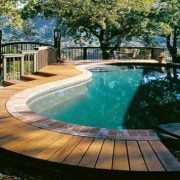Solar Lights are life-saving products you should have in your home. They can brighten up your room, yard, walkway, garage with less consuming bills. They are a great addition to the CFL lights and work well in every condition, like rainy weather, hot and humid climate, dry climate, etc.
The common question among many homeowners is whether these lights work in a cloudy atmosphere? Do they work on a full basis or reduce the energy consumption by providing dim lights?
The answer is Yes! Westinghouse Solar Lights work quite well in a cloudy climate. Solar Lights are much like Solar Panels but on a small effort than the panel. The sun’s rays are used to charge up the solar lights, and on a bright warm day, with just 6-8 hours of sunlight, your solar lights can get charged up to work for 12-15 hours.
That is how powerful and effective solar lights are; you will not need to fix them again and again like the CFLs, or you will not do not have huge bills for working in the light all day, plus just one solar light can brighten up your whole room, and this is a lifelong product.
Impact of Cloudy Climate
The only essential thing these lights or solar panels need is Sunlight; it is the only source of their power, which is why you must make sure that either your house is tall enough to get all the sunlight or is away from any big trees or bushes that might throw shade on the panels.
With the rain clouds coming up, the weather starts to get disturbed, which means the amount of sunlight will be less but will be there.
With the clouds coming up, it will create a shadow over the solar panels, because of which there will not be enough energy generated. This means that the solar light batteries will charge slower, from 50% to 30%.
But, if you live in a plain area, and receive just one or two days of rainfall or cloudy weather, then you do not have to worry because some solar lights charge themselves up to their full extent and work for those 1-2 days fully without the need of sunlight, more than that will require some sunlight.
Those who live in hilly areas or where the rainfall is quite often will receive only 6-8 hours of light due to the less sunlight received, and the same goes if you experience cloudy weather even for a day.
Only at those places where the snowfall occurs most of the months is it recommended to install the solar panels during the Spring Season and not before that since there will be no sunlight and hence the solar lights will not be working.
Solar lights are an excellent choice to add to your home; not only will they save your money, but add a classy touch to your room.
The lights will not be harsh, bright white light, but soothing to eyes, and cover even the corner of your room. In most parts, solar lights work to their maximum level throughout the year, even in few hilly areas.
But, yes, if you are living in an area where there is heavy snowfall or rainfall, you must take the solar lights down during Winters or Rainy season and install them up in either Summers or Spring.
Conclusion
Solar lights are a great addition to your house; installing them will help you save lots of money on those never-ending electricity bills of yours.
You need to be sure of the weather climate near your area so that you can install the solar panels and lights accordingly.
Rest you do not have to worry about anything, installing solar lights, and solar panels will be the best step you will take for your house.
And there are many products to choose from, categorizing from the size, shape, energy capacity, and with these categories, you can easily see which one you want to choose for your home.














Comments